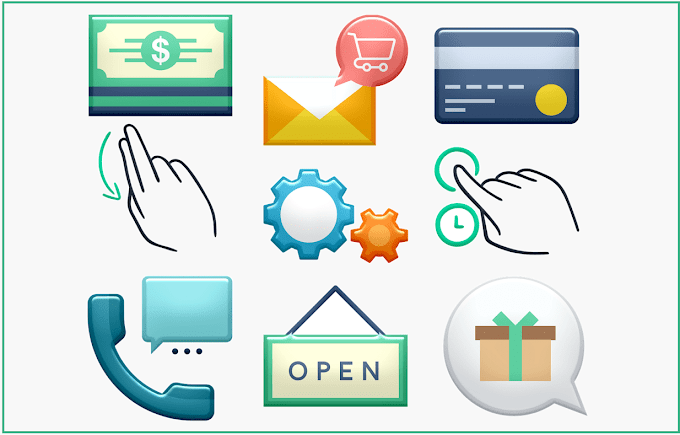
Businesses continuously search for ways to improve output, adaptability, and teamwork in the hectic environment of today. Particularly in the sphere of software development, agile methodology has become a top project management approach. 86% of marketers plan to shift some or all of their marketing teams to Agile methodologies.
Setting it different from more inflexible methods like the waterfall methodology, it stresses iterative progress, teamwork, and change responsiveness. Here is a detailed overview of Agile methodology and how it may revolutionize your company's processes.
Understanding Agile Methodology
Agile approach is a method of project management emphasizing small steps of progress. Agile stresses delivering smaller, functioning bits at consistent intervals rather than completing a project all at once at the end. Teams can thus adjust to changes, include comments, and keep developing all along the project life.
Fundamentally, Agile supports ideals including customer cooperation, adaptability in reacting to change, and early delivery of worthwhile results. Its framework is built around transparency, iterative progress, and team empowerment, making it a popular choice for industries that thrive on innovation and adaptability.
Agile vs. Waterfall: a Key Differentiator
The debate of agile vs waterfall often arises when selecting a project management methodology. Although both strategies seek for excellent outcomes, their execution is very different.
Waterfall methodology follows a sequential path, is linear and organized. Teams typically complete one phase, such as planning, before moving on to the next, like execution or testing. This method cannot switch and become more versatile in the middle of a project although it is successful on projects that have defined, unalterable objectives.
In contrast, Agile allows the ongoing improvement and can easily share measures when it is best to switch gears. As mentioned previously, organizations operating in the highly competitive industry and especially the software development industry consider Agile as more appropriate for use.
Agile in the Software Development Process
The use of agile methodology is most effective in the software development process because speed and flexibility are important. By involving sub-goals, Agile guarantees that developers are able to bring in functional elements in short periods of time as defined by the sprints.
According to the Pulse of the Profession Report 2024, 53% of respondents in the Information Technology industry report using Agile always or often. Continuity of tests, intake of customer feedback, and the processes of prototyping and refining are used to prevent problems from developing further along the line. Integrated also promotes cross team working so that every stakeholder is kept informed at all phases of development.
Benefits of Agile for Your Business
#1. Enhanced Flexibility And Adaptability
Agile lets teams react to changing client expectations or market developments without dragging down the whole project. This adaptability guarantees that companies keep relevant and competitive.
#2. Improved Customer Satisfaction
Agile guarantees that clients regularly experience value early on by providing functional increments. Feedback loops let one make more precisely tailored changes that satisfy consumer expectations.
#3. Faster Time-To-Market
Agile's iterative methodology speeds the delivery of useable components, enabling companies to ship features ahead of more conventional methods.
#4. Cost Efficiency
Regular testing and feedback cycles enable early identification of problems, therefore reducing the possibility of costly rework. Companies can better distribute resources, hence maximizing project budgets.
#5. Increased Team Collaboration
Agile promotes open communication, responsibility, and teamwork, therefore fostering an environment in which innovation and creativity flourish.
When Waterfall Methodology Might Be The Right Fit
Despite Agile’s many advantages, waterfall methodology remains relevant for certain projects. Companies managing projects with well defined needs, low changes, or a set schedule would gain more from the methodical, linear approach of Waterfall.
For example, sectors like manufacturing or construction may depend on waterfalls since they provide a predictable quality. Agile is still the recommended tool, nonetheless, for dynamic sectors.
Why Hire Remote Software Developers For Agile Projects?
Agile implementation depends on a qualified team. Many businesses today choose to hire remote software developers to access global talent and expertise. Remote developers enhance agile team creativity and problem-solving by bringing varied viewpoints and abilities.
Using remote teams allows companies to effectively scale projects and maintain reasonable expenses. Furthermore, Agile-savvy remote developers can fit very well into current processes, guaranteeing best cooperation and output.
How To Transition To Agile Methodology?
If your business currently uses a traditional project management methodology, transitioning to Agile might seem daunting. However, the following steps can ease the process:
1. Start small: Begin with a single team or project to test Agile’s effectiveness.
2. Invest in training: Invest in training to equip your staff with tools and knowledge required for Agile application.
3. Adopt agile tools: Using project management software can help you to enable transparency and collaboration.
4. Foster an agile mindset: Encourage among team members openness, flexibility, and teamwork to develop an Agile mindset.
5. Seek expert guidance: Working with seasoned Agile consultants or developers will help to simplify the change.
Final Thoughts
Agile methodology offers unparalleled flexibility, faster delivery, and improved cooperation, therefore redefining how companies handle projects. Although conventional methods such as Waterfall methodology still have value, Agile's iterative and flexible character makes it absolutely essential for sectors including software development.
Adopting Agile will help your company keep ahead of the curve, provide outstanding value, and encourage innovation inside your team. If you're ready to change your project management style, think about appointing qualified remote software engineers to fully utilize agile methodology.




![Performance Marketing - What Is it & How It Works [+ 6 Tools You Can Use]](https://blogger.googleusercontent.com/img/b/R29vZ2xl/AVvXsEj0akcIPU36HHfqWoYrb2LCMNG8OvxPb9drUYKWJZvSXmfbJG0OrjN5jfzTFDmT-9MKcuZt-G-66PiLlIVjgX1DwCNzHeIMW0pjW7W3IB2rZYzx4ISbL2T6JC4M38eubqHxQ3e71l2_n7oxh2f2QdV3d1prJ6z9HQNsSyfjtO18diLxEZg-5wD-I6RINFY/w680/performance_marketing-min.png)





0 Comments